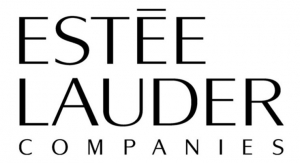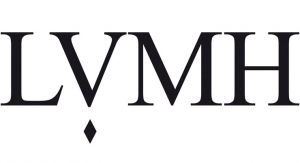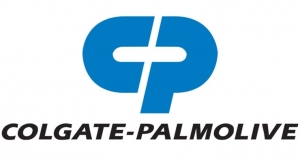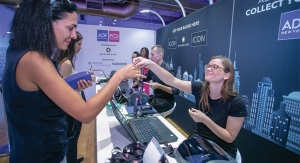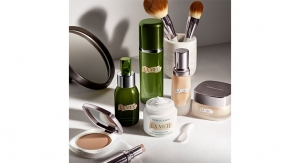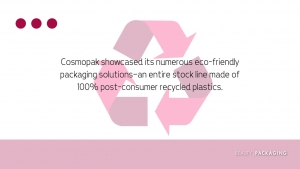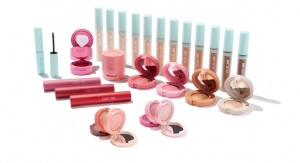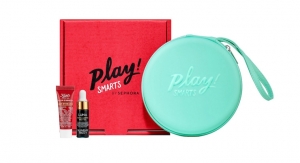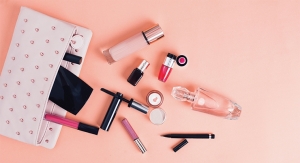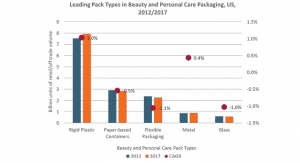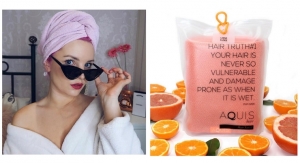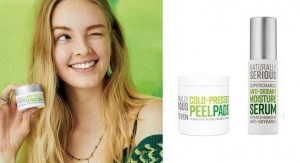12.17.18
According to a new market analysis by Ecovia Intelligence (formerly Organic Monitor), the North American market for natural and organic personal care products is continuing its positive trajectory, with revenues reaching $5.6 billion this year. Growing consumer demand for “clean beauty” products and increasing distribution are driving market growth.
In fact, Ecovia found that natural and organic products now comprise over 6% of personal care product sales in North America. Natural and organic hair care products have the highest market share, at 9.5%. Most revenues are however from natural skin care products because of the popularity of products like moisturizers, lotions, soaps, masks, etc.
Investments and acquisitions have become a key feature of the North American market, according to Ecovia’s findings. The leading brands are now owned by large multinationals or investment firms. New entrants however continue, with some targeting specific consumer groups and/or specific channels.
Natural food stores are the traditional outlets for natural personal care products. However, the market share is in decline, says Ecovia, as distribution increases in conventional channels. Natural and organic personal care products are making inroads in specialty personal care stores, department stores, drugstores and supermarkets. Some like Sephora are giving dedicated areas to natural and organic beauty products. Another trend is that new stores that specialize in clean beauty products, such as Credo Beauty, are opening. After opening the first outlet in 2015, it now operates 9 Credo Beauty stores.
Ecovia Intelligence finds that although the number of natural and organic personal care standards has increased substantially over the last decade, adoption rates remain low. Certified products represent roughly 10% of natural and organic personal care product sales. NPA and NSF ANSI 305 are the most popular standards, however other ethical labels are gaining traction. The Non-GMO project Verified label is the fastest growing, currently adopted by about 30 personal care brands.
Competitive stakes are rising, with brands jostling for retail shelf-space, says Ecovia. “Pioneers are shifting their focus from natural ingredients to wider green issues, such as ethical sourcing of raw materials, sustainable packaging, and resource efficiency.” Case studies of such brands, as well as latest findings from this market analysis, will be presented at the Natural Cosmetics Masterclass. (Organized by Ecovia Intelligence, the Natural Cosmetics Masterclass will take place at Hilton San Francisco Financial District on January 15, 2019.).
In fact, Ecovia found that natural and organic products now comprise over 6% of personal care product sales in North America. Natural and organic hair care products have the highest market share, at 9.5%. Most revenues are however from natural skin care products because of the popularity of products like moisturizers, lotions, soaps, masks, etc.
Investments and acquisitions have become a key feature of the North American market, according to Ecovia’s findings. The leading brands are now owned by large multinationals or investment firms. New entrants however continue, with some targeting specific consumer groups and/or specific channels.
Natural food stores are the traditional outlets for natural personal care products. However, the market share is in decline, says Ecovia, as distribution increases in conventional channels. Natural and organic personal care products are making inroads in specialty personal care stores, department stores, drugstores and supermarkets. Some like Sephora are giving dedicated areas to natural and organic beauty products. Another trend is that new stores that specialize in clean beauty products, such as Credo Beauty, are opening. After opening the first outlet in 2015, it now operates 9 Credo Beauty stores.
Ecovia Intelligence finds that although the number of natural and organic personal care standards has increased substantially over the last decade, adoption rates remain low. Certified products represent roughly 10% of natural and organic personal care product sales. NPA and NSF ANSI 305 are the most popular standards, however other ethical labels are gaining traction. The Non-GMO project Verified label is the fastest growing, currently adopted by about 30 personal care brands.
Competitive stakes are rising, with brands jostling for retail shelf-space, says Ecovia. “Pioneers are shifting their focus from natural ingredients to wider green issues, such as ethical sourcing of raw materials, sustainable packaging, and resource efficiency.” Case studies of such brands, as well as latest findings from this market analysis, will be presented at the Natural Cosmetics Masterclass. (Organized by Ecovia Intelligence, the Natural Cosmetics Masterclass will take place at Hilton San Francisco Financial District on January 15, 2019.).




